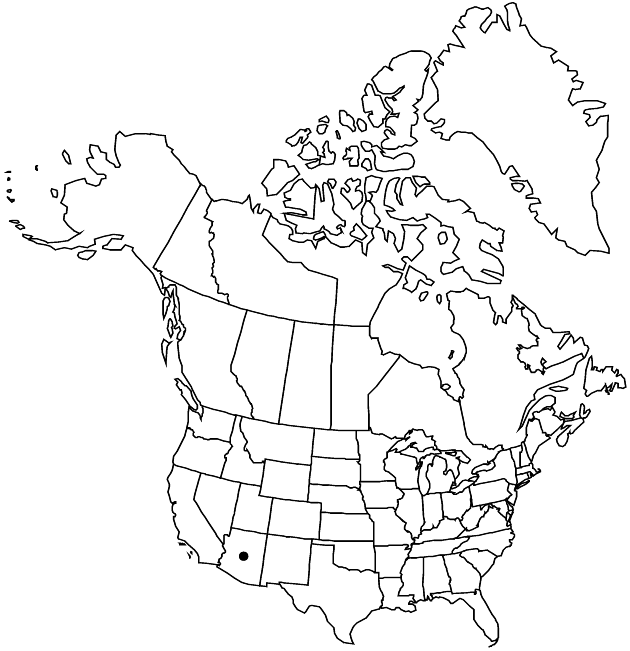Difference between revisions of "Erigeron sceptrifer"
Phytologia 69: 248. 1990.
imported>Volume Importer |
imported>Volume Importer |
||
| Line 48: | Line 48: | ||
|publication year=1990 | |publication year=1990 | ||
|special status= | |special status= | ||
| − | |source xml=https:// | + | |source xml=https://bitbucket.org/aafc-mbb/fna-data-curation/src/2e0870ddd59836b60bcf96646a41e87ea5a5943a/coarse_grained_fna_xml/V19-20-21/V20_772.xml |
|tribe=Asteraceae tribe Astereae | |tribe=Asteraceae tribe Astereae | ||
|genus=Erigeron | |genus=Erigeron | ||
Latest revision as of 20:05, 5 November 2020
Annuals, 3–8 cm; taprooted. Stems (single or multiple) ascending from bases, moderately hirsuto-hirtellous (hairs spreading-ascending, mostly on ribs, bases thickened), minutely glandular. Leaves mostly cauline; blades linear to linear-oblanceolate, 10–30 × 0.5–1.5 mm (proximal rarely 4 mm wide), margins entire or proximalmost with 1–2 pairs of teeth, faces loosely ascending-strigose, minutely glandular. Heads 20–50+ in loosely corymbiform arrays (buds erect). Involucres 3–3.5 × 4–6 mm. Phyllaries in 3–4 series, sparsely hirsuto-strigose, minutely glandular. Ray florets (60–)85–130(–195); corollas white, drying purple, less often pink to bluish, 3.8–5 mm, laminae downward curving-reflexing. Disc corollas 1.8–2.3 mm (throats indurate and inflated). Cypselae 0.6–0.7 mm, 2-nerved (nerves orange), faces sparsely strigose; pappi: outer 0 or scales or setae, inner of 9–14 bristles.
Phenology: Flowering Jul–Oct.
Habitat: Grasslands with scattered juniper, oak, or oak-pine
Elevation: 1300–2100 m
Distribution

Ariz., Mexico (Chihuahua, Sonora).
Discussion
Of conservation concern.
Erigeron sceptrifer is similar in habit to E. divergens; it has stem hairs only along the ribs, erect (versus nodding) buds, pappi of more bristles, without a conspicuous outer series, reflexing ray laminae, and orange cypselar nerves.
Selected References
None.